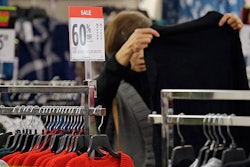Over the past several years, there has been a deepening circuit split over a key issue in class action litigation: whether a class must be “ascertainable” before it can be certified. The principle involved is reasonably straightforward — before a court certifies a class, there should be some method to determine the actual class members.
The Circuit Courts of Appeal remain divided over this requirement’s applicability, however, and recent developments indicate that the Supreme Court is not yet ready to resolve the issue. But, as the decisions highlighted here indicate, in those circuits where the requirement still applies, it remains an important tool in defeating class certification. Therefore, so long as certification is denied on these grounds, the effect of the circuit split will continue to be felt — thus leaving open the possibility of renewed Supreme Court interest down the road.
The disparate approaches to ascertainability are exemplified in two decisions: Carrera v. Bayer from the Third Circuit, and more recently, Briseno v. Conagra from the Ninth Circuit.[1]
The decision in Carrera exemplifies the approach of courts that apply ascertainability. In this case, the Third Circuit held that before a class can be certified, the court must determine whether “(1) the class is defined with reference to objective criteria, and (2) there is a reliable and administratively feasible mechanism for determining whether putative class members fall within the class definition.”[2] As a practical matter, this means that the court should not have to engage in searches and individual factual inquires to determine who is in the class. As the Third Circuit observed in Carrera and has reiterated in other cases, only when a class is “ascertainable” can the district court “identify class members in a manner consistent with the efficiencies of a class action.”[3]
District courts in the Third Circuit have since applied the ascertainability requirement to deny certification in food and beverage class actions because of the inherent difficulty of reliably identifying purchasers of low-priced food products over a period of several years. For example, in January 2018, the District of New Jersey denied certification on ascertainability grounds in In re: Tropicana Orange Juice Marketing and Sales Practices Litigation.[4] The plaintiffs in Tropicana alleged that the defendant’s orange juice labeling was misleading regarding its use of natural flavoring and argued that it would be “administratively feasible” for the court to use loyalty card data from grocers to determine who actually bought the products in suit. As the court explained, however, this data was incomplete (because it did not cover all purchasers) and not sufficiently reliable (because it contained user-entered data that might be outdated or inaccurate): “The record before the Court does not show by a preponderance of the evidence that Plaintiffs can identify all, or even a majority, of putative class members.”[5]
While the Third Circuit applies a rigorous standard, the Ninth Circuit has rejected the “ascertainability” requirement. In Briseno v. Conagra, the Ninth Circuit held that ascertainability is not a requirement for class actions — reasoning that Rule 23 does not explicitly require an “administratively feasible” method of identifying putative class members.[6] The court explained that Rule 23’s “superiority” requirement provides a sufficient safeguard against certifying classes where identification of putative class members is unmanageable.
The defendants in Briseno sought review of the Ninth Circuit’s decision at the Supreme Court — noting that the decision was in contrast with Carrera and other circuits that impose an ascertainability requirement. The Supreme Court ultimately denied certiorari in the case last October, thus leaving the circuit split in place. This means that, for now, litigants must contend with varying standards based on where their lawsuits are pending.
Even in the Ninth Circuit, however, there remain some safeguards against certification of otherwise unascertainable classes. For example, in Bruton v. Gerber Products, which was remanded to the district court in light of Briseno, the court denied class certification in a case concerning dozens of different food products with hundreds of varying claims.[7] Despite the inapplicability of ascertainability, the court still noted — in connection with its damages analysis — the difficulty in certifying a class where not all class members purchased or even saw the affected products: “[Plaintiff] moves for class certification based on 69 products, and at least five distinct statements spread across 344 labels… Moreover, of the 69 products at issue, 66 had multiple label iterations with material variation — some labels contained the challenged statements, some did not, and some had only one or different statements in different locations than on other variations of the same product label.”[8] As Bruton thus illustrates, unascertainable classes often have related problems that bar certification.
With that said, in jurisdictions where ascertainability still applies, it remains a valuable tool against certification of improperly vague classes; at the same time, in those jurisdictions where the requirement does not apply, other related arguments against certification still stand. As food and beverage class actions continue to be vigorously litigated at the class certification stage, the potential for varying application of the ascertainability requirement to produce conflicting outcomes may yet encourage the Supreme Court
Charles Sipos is a partner with Perkins Coie.
[1] Carrera v. Bayer Corp., 727 F.3d 300 (3d Cir. 2013); Briseno v. Conagra Foods, 844 F.3d 1121 (2017).
[2] Carrera, 727 F.3d at 306.
[3] Id. at 307.
[4] In re Tropicana Orange Juice Sales Practices Litigation, 2018 WL 497071 (D.N.J. Jan. 22, 2018).
[5] Id. at *11.
[6] Briseno, 844 F.3d at 1122-24.
[7] Bruton v. Gerber Prods. Co., 2018 WL 1009257 (N.D. Cal. Feb. 13, 2018).
[8] Id. at *10.






















